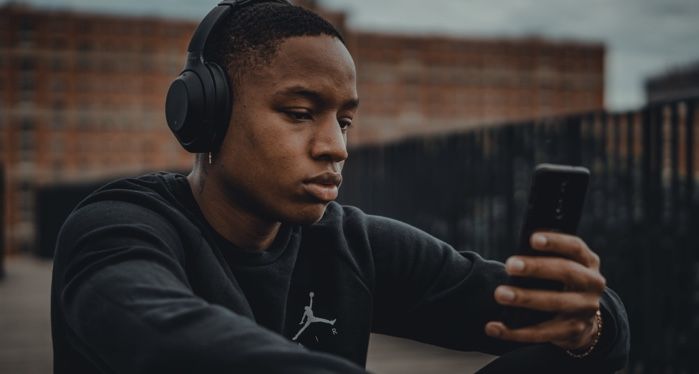Since Apple launched its AI narrator program, the internet has been abuzz debating what is in store for the future of audiobooks. Is this the end for audiobook narrators? Is this a breakthrough in accessibility for disabled people? How do we balance the two? Even though I’ve read more articles about AI audiobook narration than I can count, I haven’t seen many, if any, outlets asking disabled people who actually use assistive technology to read what we think of this development. As someone who uses audiobooks and screen readers to read text, I quickly grew frustrated by Apple’s insistence that AI narration was 100% a great thing. While some commentators hedged their bets, the prevailing point of view seemed to be that for disabled people, AI narration is better than nothing.
Audiobooks are, and will always be, first and foremost an accessibility tool, which has now turned into an incredible artform. Audiobooks are not just a sum of their parts or a buck to be made. Audiobook narrators agree. In an article for Publisher’s Weekly, actor and narrator Emily Lawrence, co-founder of the Professional Audiobook Narrators Association (PANA) and president of its board of directors says, “It’s very easy to reduce this issue to dollars and cents, but it’s very complicated and nuanced.”
Audiobooks represent the intersection of several communities, a brilliant collaboration between cultures and artforms. The literary qualities of the text and the performance of the narrator are built on a foundation created by disabled people in our efforts to receive equitable access.
When I first thought about writing about AI narration, I wasn’t sure I could do it. I felt angry, disappointed, and so discouraged by the discussion of AI audiobook narrators. And, honestly, I’m tired of being told that I should be grateful for “better than nothing.” I’m exhausted by nondisabled people shrugging off the voices of disabled people pointing out the issues with AI narration for audiobooks. And I’m eternally frustrated at seeing articles discussing AI narrators without a single disabled person quoted or even mentioned.
That’s the thing though, isn’t it? For so many nondisabled people, it’s hard to imagine that disabled people have any culture, any artform, that has stemmed from our own disabilities and use of accessibility aids. To so many nondisabled people, disabled people are just something to be pitied. How could we have culture or art? Are our lives really worth celebrating?
But they miss the little girl who excitedly shows off her pink wheelchair or glittery crutches. They don’t see the long history of the Deaf people’s vibrant communities or dark humor of the chronically ill turned into a comedy show. They don’t see disabled culture because they won’t stop looking through the lenses of their own ableism. And so they fail to see audiobooks for what they fundamentally are, a beautiful extension of disability culture that any listener can enjoy.
AI narration could prove useful in other ways. From my perspective as someone who already uses Apple’s screen reader app on my iPhone, I think that using AI narration technology to create a better screen reader could benefit disabled people. Because the one currently available often glitches and stumbles its way across social media and personal emails, often making it easier for me to just hand my phone to someone nearby and ask, “Can you just read this to me?” But let’s not pretend that AI reading text as a screen reader is the same thing as an audiobook. Understanding this difference moves us towards a more equitable future for disabled people and respect for the artform that audiobook narrators create with their performances.
“Better than nothing” is not equitable access. For disabled people to truly have the access to books that we deserve, the audiobooks available shouldn’t be stripped of all of the humanity that narrators bring to their performances. Since the news broke about Apple’s new AI narration program, I’ve seen so many comments about how most people can’t tell the difference between an AI and a human performance. But those of us who use audiobooks regularly as an assistive technology aren’t “most people.” We CAN tell the difference. And, actually, a lot of other kinds of listeners can tell a difference too. On his TikTok, author and narrator Travis Baldree gave a comparison of an AI trained on his voice and his own performance. It’s easy to hear a difference in the AI versus his own narration. Baldree brings such emotion, such life and nuance to his performance that the AI technology just can’t match.
Perhaps I should try to be more objective when discussing AI audiobook narration. But honestly, I can’t. I have emotions, and that’s part of what makes me human. And it’s the same reason why AI narrators can’t understand the emotion behind the text. For me, there are few things more beautiful than when a human audiobook narrator provides me with access to a book I want to read. It’s like they’re sitting down next to me and saying, “Oh, you can’t read this? No worries. Here, let me read it to you.” That’s equitable access.
